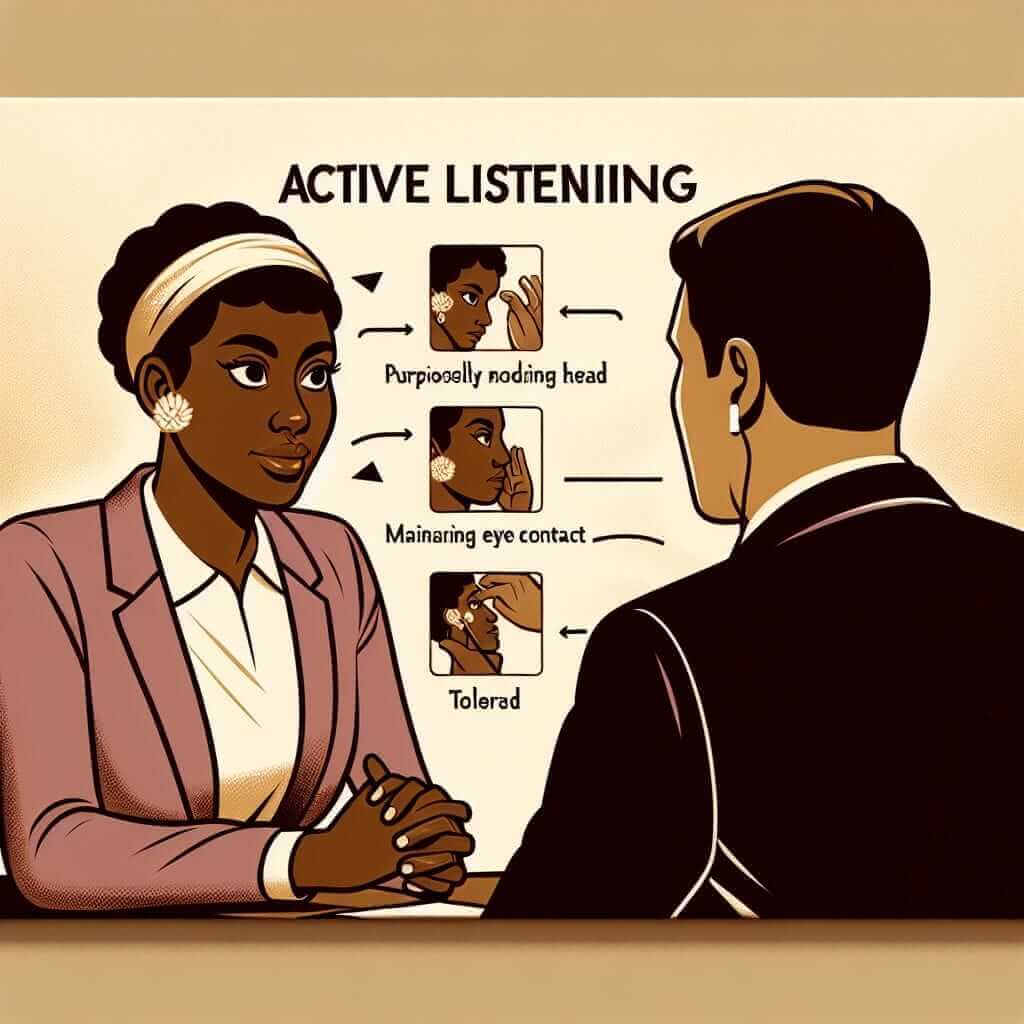The IELTS Speaking exam tests your English speaking skills through a face-to-face interview with an examiner. The examiner will assess your ability to communicate effectively in English, fluency, coherence, vocabulary, grammar, and pronunciation. In this article, we will prepare for a common speaking task: describing a person who is good at listening, ensuring you have the right strategies, vocabulary, and structure to score high.
II. Main Content
1. Part 1: Introduction and Interview
In Part 1 of the IELTS Speaking exam, you will be asked general questions about yourself and a range of familiar topics. Here’s a common question the examiner might ask:
Question: Do you think listening skills are important in communication?
Sample Answer:
“Yes, I believe listening skills are absolutely crucial in effective communication. When you actively listen, you show respect and empathy towards the speaker, which helps in building trust and rapport. Additionally, listening carefully can prevent misunderstandings and enhance the overall quality of the conversation.”
2. Part 2: Long Turn
Cue Card
Describe a person who is good at listening. You should say:
- Who this person is
- How you know him/her
- What makes him/her a good listener
- And explain how this person has influenced you
Sample Answer:
“I would like to talk about my friend Mary, who is an exceptional listener. I met Mary during our university years, and we have been close friends ever since. What stands out about Mary is her uncanny ability to actively listen without interrupting. She maintains eye contact, nods thoughtfully, and often remembers small details from previous conversations.
Mary’s genuine interest in others’ stories and her empathetic nature make her a trustworthy confidant. She never judges or offers unsolicited advice; instead, she asks questions that help you to reflect deeper. This quality of hers has made a significant impact on my life. Whenever I am stressed or confused, talking with Mary helps me to gain clarity and find solutions. Her active listening skill has not only made her an amazing friend but also inspired me to become a better listener myself.”
Follow-up Questions:
1. How important is it to be a good listener in today’s world?
Sample Answer:
“In today’s fast-paced world, being a good listener is incredibly important. With the constant noise and distractions from social media and technology, the ability to listen attentively can help in fostering meaningful relationships, both personally and professionally.”
2. What are some qualities of a good listener?
Sample Answer:
“A good listener should be patient, empathetic, and non-judgmental. They should give their full attention to the speaker, maintain eye contact, and provide feedback that shows they have understood the message.”
3. Part 3: Two-way Discussion
Examiner’s Question:
“In what ways do good listening skills contribute to success in the workplace?”
Sample Answer:
“Good listening skills are instrumental in achieving success at the workplace. They enable better collaboration among team members since understanding each other’s perspectives can lead to more effective problem-solving. Managers who listen well can also identify the strengths and weaknesses of their team members, providing support where necessary and motivating them to perform at their best.”
Examiner’s Question:
“How can schools and universities help students improve their listening skills?”
Sample Answer:
“Educational institutions can help students improve their listening skills by incorporating more active listening exercises in the curriculum, such as group discussions, presentations, and role plays. Teachers can emphasize the importance of listening and provide constructive feedback. Additionally, multimedia resources like podcasts and audio books can be effective tools to enhance students’ listening abilities.”

III. Vocabulary and Key Phrases
1. Crucial (adjective): /ˈkruːʃəl/ – extremely important.
Example: Effective communication is crucial in maintaining healthy relationships.
2. Rapport (noun): /ræˈpɔːr/ – a friendly, harmonious relationship.
Example: Active listening helps build rapport between colleagues.
3. Trustworthy (adjective): /ˈtrʌstˌwɜːði/ – able to be relied on as honest or truthful.
Example: A good listener is often seen as trustworthy and reliable.
4. Empathy (noun): /ˈɛmpəθi/ – the ability to understand and share the feelings of another.
Example: Showing empathy can greatly enhance the quality of your interactions.
5. Non-judgmental (adjective): /ˌnɒnˈdʒʌdʒmɛntəl/ – avoiding moral judgments.
Example: It’s important to be non-judgmental when listening to others’ experiences.
IV. Examiner’s Tips
- Practice Regularly: Regular practice helps you become comfortable with various types of questions.
- Use Real-life Examples: Relating your answers to real-life examples makes them more convincing.
- Expand Your Vocabulary: Use a wide range of vocabulary to express yourself clearly and accurately.
- Stay Calm and Confident: Confidence in your delivery can positively influence your performance.
By following the structure and using the provided sample answers and vocabulary, you will be better prepared to articulate your thoughts clearly and effectively, ensuring a high score in the IELTS Speaking exam.
For further practice, check out related articles:
- Describe a place where you go to unwind after a busy day
- Describe a person who is good at storytelling
Good luck with your preparation and aim to be as articulate and engaging as possible during your IELTS Speaking exam!